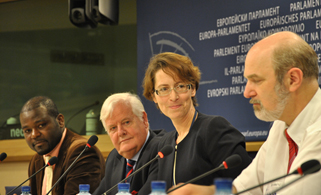If there is one issue dominating European youth ministry conversation right now it is discipleship, and there are a number of great initiatives emerging including a European Discipleship Movement. In fact to be honest it is the global youth ministry discussion. In every context in every corner of the world it is discipleship, discipleship, discipleship. The challenges differ. How do I disciple a young person living in a different faith context? How do I disciple a young person from an oral tradition? Or most fascinatingly, in Nepal, how do I disciple a young person come to faith through witnessing a miracle? How do I get her to see God not as a medicine man but as her personal Father? Again there are great initiatives globally like the SU/ Bible Society Biblical Engagement project. But the challenges are huge.
Most agree that the major obstacle to discipling young people is that discipleship is caught not taught, and sadly if we have a discipleship problem it is largely of our own making. For instance Christian parents who put their children into extra tutoring the night of the youth bible study, can’t later bemoan the fact their kids put a low priority on their spiritual development.
One of the biggest challenge though lies in the models of Christian leadership we set. A few weeks ago I asked a young Pakistani who came to faith through our Alpha course in London, what it was that made the difference. He told me that as a child he had experienced his family treat the Imam one way and other people another. It seemed that was what was expected in Islam. Then he heard of a Jesus who just loved people regardless of their social class, gender, race or age! It was thrilling to hear how the love of Christ speaks so profoundly, but equally it was sad that I had to give my friend a bit of a warning: that he may see in Christian leadership what so turned him off Islam.
This is a global problem to which we in European are not immune. It is a problem for all traditions including evangelicalism. Leaders who find identity and worth in the prestige their role affords, and consequently aren’t prepared to make way for emerging leaders. Leaders who fail to see their legacy is not what they do but what they empower others to do, so don’t make mentoring younger leaders a priority. Leaders who fail to reveal their humanity and vulnerability to a generation who in any case can sniff hypocracy at a thousand paces.
Fortunately as I say there are a number of initiatives both European and global where these issues are being hit head on, and those who engage honestly in them will become part of the answer not part of the problem.
Colin Piper
Exec. Director World Evang. Alliance Youth Commission







